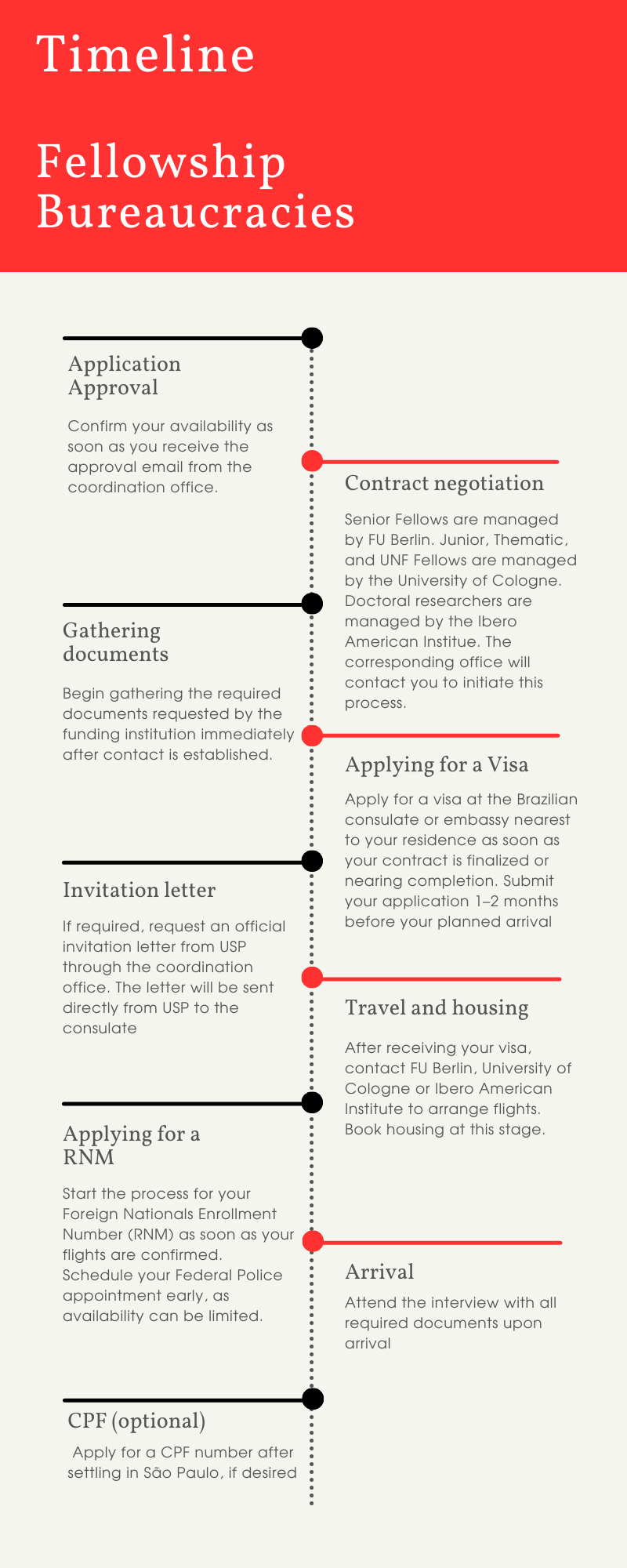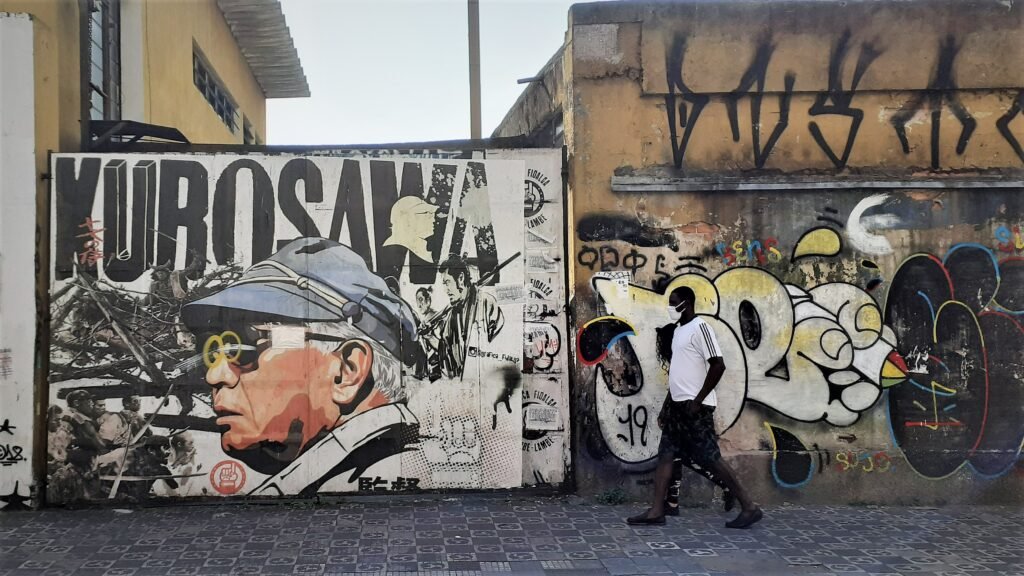Mecila's Handbook for Fellows
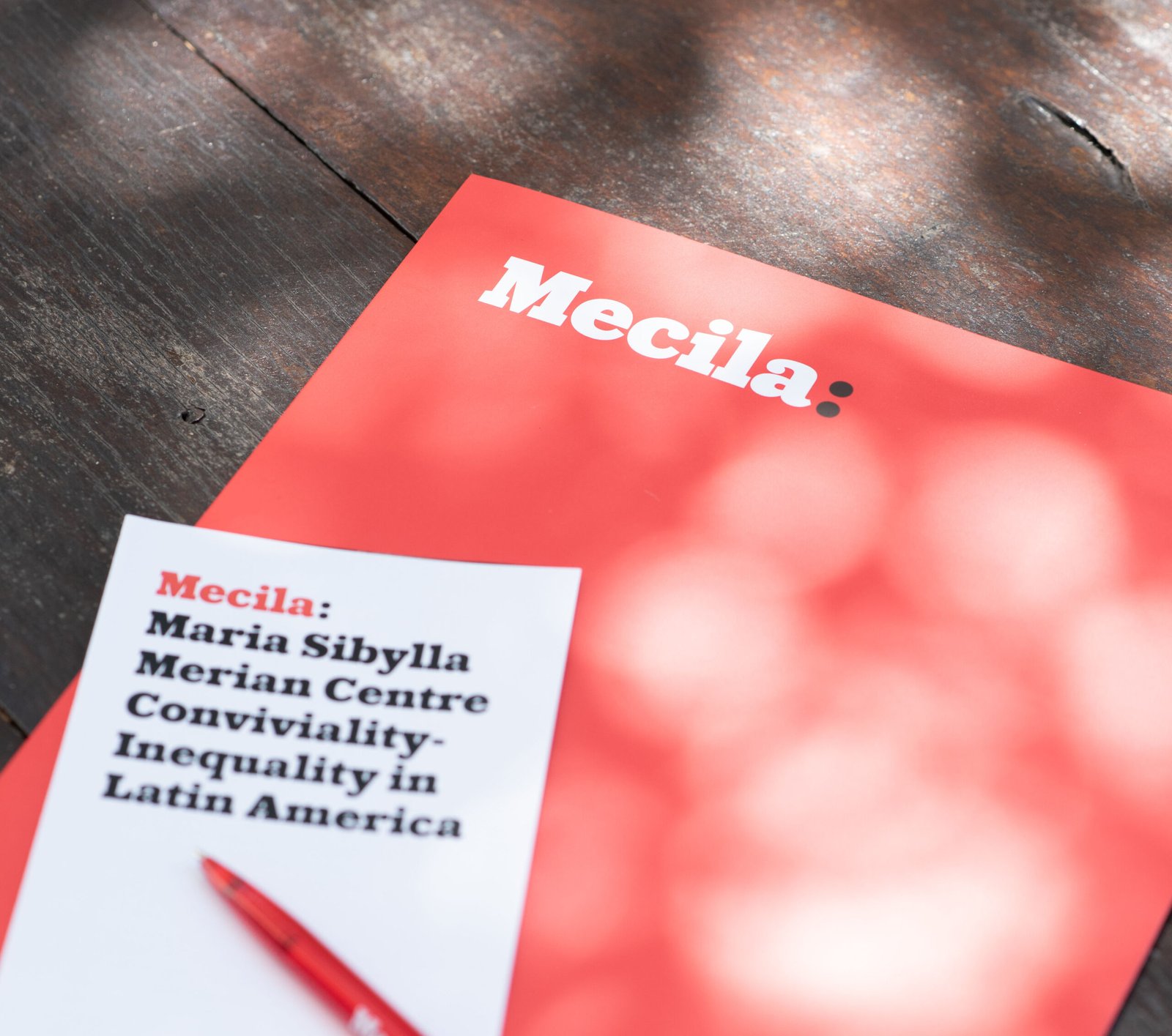
Dear Fellow,
We are glad to have you with us as part of the Maria Sibylla Merian Centre Conviviality-Inequality in Latin America.
In 2017, when Mecila started its activities, the recruitment of new researchers from different areas of knowledge and places in the world was set as a priority for the Centre. Having all of you joining and expanding this network proves that this endeavour is succeeding. This guide should provide you with basic information for better enjoying your experience at Mecila.
Here you are given a basic overview of the Centre, the resources at your disposal, and the types of activities and outreach production developed by the Centre. We expect your experience with us will not be limited to the months of your fellowship, but rather that Mecila can become new ground on which new ideas, projects, and relations can flourish.
To avoid redundancies, this guide will redirect you to other pages or more detailed guides
What is Mecila?
Mecila (Maria Sibylla Merian International Centre for Advanced Studies in the Humanities and Social Sciences Conviviality- Inequality in Latin America) examines past and present forms of social, political, and cultural conviviality in Latin America and the Caribbean. It employs conviviality as an analytical concept to describe ways of living together in specific contexts characterised by diversity and inequality.
Research conducted here thus links studies about interclass, interethnic, intercultural, interreligious, and gender relations in Latin America and the Caribbean with studies about conviviality beyond the region. In doing so, the Centre aims to establish an innovative exchange with benefits for both European and Latin American research. The Centre organises conferences as well as thematically focused workshops on conviviality and inequality at the consortium’s institutions in Latin America and Germany.
The Centre’s headquarters were established in São Paulo (Brazil) by a consortium composed of three German institutions as well as four Latin American institutions and draws on the existing long-term cooperation between these institutions. It has been financially supported by the German Federal Ministry of Education and Research (BMBF) since April 2017.
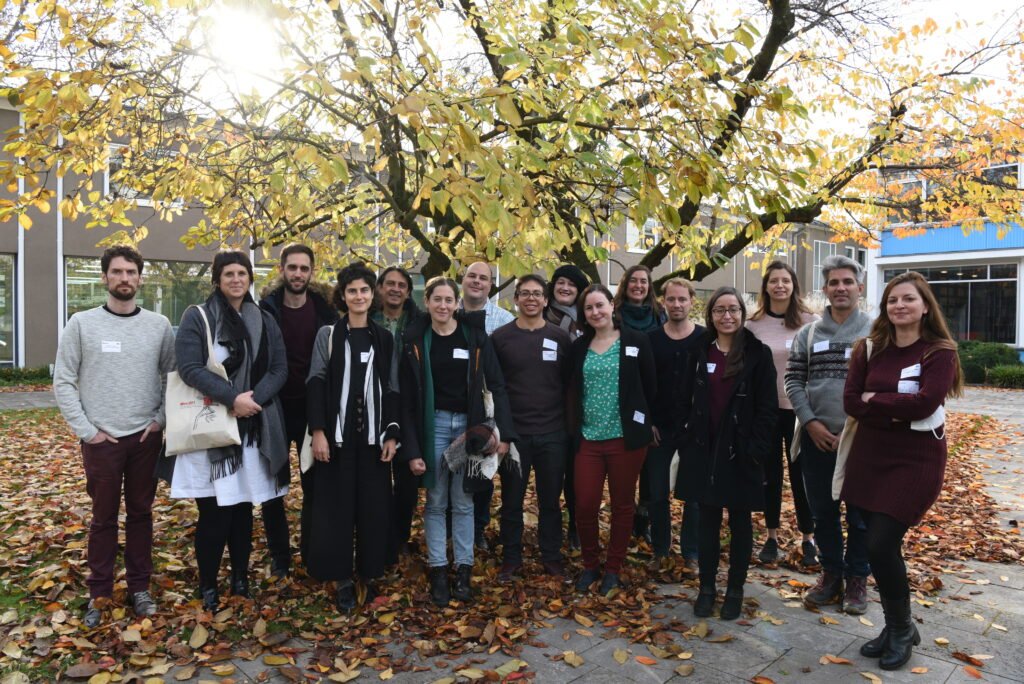
Structure
Mecila is led by the Executive Board, consisting of representatives of its seven member institutions, one representative of the Postdoctoral Researchers, and the Scientific Manager. Each year, the Executive Board elects four Directors (two from Germany, two from Latin America) to lead the Centre. Two of these Directors are based in São Paulo during their terms, while the other two chair the Centre from their home institutions.
The Advisory Board advises the Executive Board in all relevant academic decisions, including the selection of Fellows, the definition of the yearly thematic focus, the internationalisation evaluation, and publication strategy.
It consists of outstanding scholars in relevant fields with a highly regarded international reputation and at least one representative of civil society.
Mecila’s Coordination Network is divided according to the roles of its institutions, constituting a : General Coordination (FU Berlin), Research and Data Management (UzK), and Information Infrastructure (IAI). The Centre’s headquarters are located at CEBRAP and USP in São Paulo.
The Centre’s Ethics Committee has the overall task to safeguard research integrity (good scientific practice) as well as the principles of equal opportunity within the Centre, especially gender balance, and,
following an intersectional approach, other structurally disadvantaged and underrepresented groups. The Ethics Committee will also arbitrate conflicts which may emerge among Mecila’s scholars and cooperation partners.
Current constitution:
• One member of the Advisory Board
• An experienced scholar: Marianne Braig (FU Berlin)
• One representative of the Postdoctoral Researchers: Carlos Nupia (IAI)
• One representative of the administrative staff: Marina Falcão (Central Coordination Office)
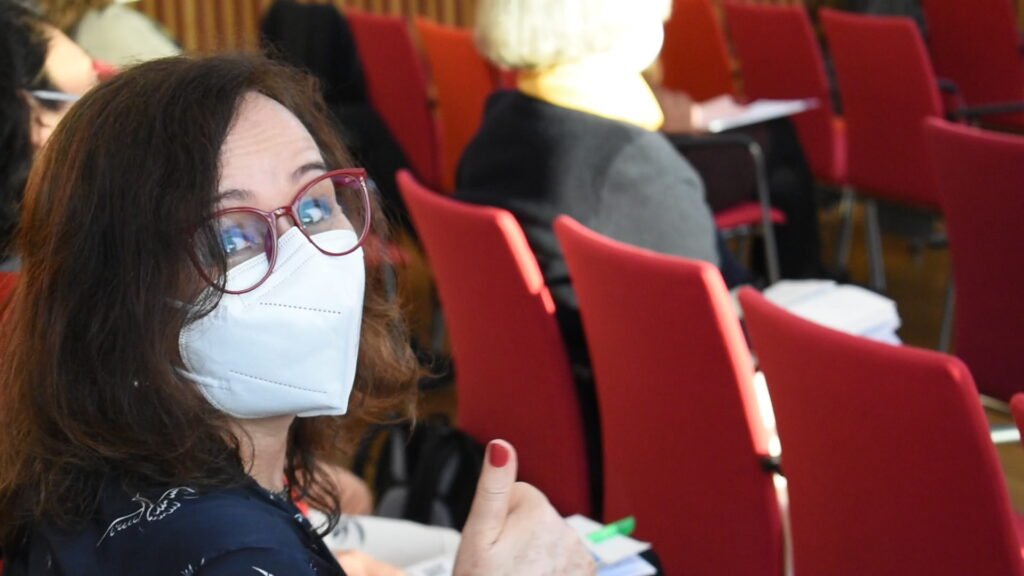
Researchers
Mecila’s researchers are either on permanent positions, or work in the Centre for a specific period selected via annual open calls.
The Centre’s Research Programme is divided into three intersectional Research Areas, each one coordinated by one of the Postdoctoral Investigators.
Research Areas
Speakers (PIs): Carlos Alba (COLMEX), Samuel Barbosa (USP), Barbara Potthast (UzK)
Coordinator: Tilmann Heil (UzK)
This Research Area brings together projects with a focus on the historical and narrative dimension of the nexus conviviality-inequality. Its guiding questions interrogate the ways in which past and present convivial configurations and regimes are shaped by various entangled histories. Hence, juridical and socio-economic aspects play a central role in this Research Area due to their importance in maintaining or shifting a given convivial regime.
Meetings:
In the past year, Junior and Senior Fellows, as well as Principal, Associate, and Postdoctoral Investigators have contributed with their individual research expertise to the Research Area [Hi]Stories of Conviviality. Monthly meetings were organised as an ‘open space’ for horizontal, explorative, and creative exchanges, tailored to the needs and ideas of the participants.
In the first meetings, we defined some of the histories and stories of inequality-conviviality that cut across individual projects to define common areas of interest: tensions between concepts of history and story, (politics of) memory, and materiality; race and racism; migration and mobility; (un)free labour and property; post- and decoloniality; (and) family, intersectionality, and gender. From these, three Working Groups (WG) emerged:
(1) Temporality, Race, and Inequality- Conviviality: Through group reviews of relevant literature, peer-commentaries, and focussed inputs, the group debated the tense conceptual pair of modernity/coloniality in relation to concepts of time, memory, race, racism, and inequality, as well as in relation to different disciplinary traditions and distinct takes on working with/on archives.
(2) Labour, Race, and Conviviality: The group embarked on a collective writing experiment, bringing together five case studies on varied configurations of labour, exploitation, race, and conviviality.
(3) Multinormativity, Legal Pluralism, and Conviviality-Inequality: Engaging with a key dimension of convivial configurations, the group’s collective work resulted in a call for papers for a workshop to debate how the challenges of convivialityinequality can be framed either through the idea of legal pluralism or multinormativity. The workshop will be held in September 2021.
Speakers (PIs): Gloria Chicote (IdIHCS), Barbara Göbel, (IAI), Susanne Klengel (FU Berlin)
Coordinator: Clara Ruvituso (IAI)
This Research Area focuses on processes of coproduction and circulation of knowledge and representation relating to the nexus between inequality and conviviality. This includes both immaterial flows of ideas, values, and imaginaries as well as relevant practices and materialisations. Writing, drawing, photographing, collecting, and exhibiting offer important clues to the study of how notions of conviviality – for instance, as utopias or mythical pasts – were manifested in objects produced and circulated in convivial and unequal contexts. The role of new media is also of interest for this Research Area.
Meetings:
In June, July, and August 2020, the Principal Investigators, Associated Investigators, and the Postdoc Investigators of the RA Medialities met virtually for the I Workshop to define the main lines of research and exchange on individual projects and concepts. From September 2020 to January 2021, the RA Medialities invited Junior and Senior Fellows to attend the Scientific Colloquium. Each session focused on a specific dimension (e.g., indigenous knowledge and arts, marginalized authors, and feminist epistemologies from Latin America), departing from standard literature in the current academic production. In February and March 2021, the group met for the II Workshop “Lessons Learned and Future Strategies”.
Research:
The RA Medialities of Conviviality developed three interconnected dimensions for the interdisciplinary research on medialities of conviviality through the lens of inequality and difference: representations, properties, and circulation between inclusion and exclusion:
(1) The dimension of representations and identities in dispute and transformation covered, above all, indigenous and Afrodescendant social thought and political praxis (especially Brazilian, but also included examples from Mexico and Colombia, Bolivia and Peru) in tension and co-construction with decolonial thinking. This dimension implies representations and disputes around different views on the construction of memories, emancipation/ liberation, and the function and role of intellectuals and academics.
(2) Interwoven with the first, the dimension of the properties (material/immaterial) of what is represented, including the performative dimension (genres), was analyzed in different concrete examples, related – above all – with the representations of and about indigenous and Afro-descendants in Latin America. The book/text support was the object of reflection as a space of authority and recognition in the academic fields. We also referred to the multiple inequalities that operate in this kind of circulation and its limits. The digital format opens up new dimensions for the analysis of representations within unequal contexts. The cross-genders appear as a possible enhancer of voices from the margins.
(3) The dimension of circulation between inclusion and exclusion was analysed in local, national, transregional (intertwined) frameworks that included: centre-periphery relations and the geopolitics of knowledge, the discussion of alternatives generated from Latin America, the north-south cooperation, and conflictive and productive dialogues.
Speakers: Sérgio Costa (FU Berlin), Juan Piovani (UNLP), Marta Machado (Cebrap)
Coordinator: Mariana Teixeira (FU Berlin)
Projects focusing on the negotiation of differences and inequalities in everyday life and within institutions fall under this Research Area. Its central research questions concern the everyday and institutional practices which reinforce or diminish patterns of inequality within convivial configurations. It also considers how various agents – including social movements, governments, academics, and migrants among others – foster or challenge existing inequalities.
Meetings:
From September 2020 to February 2021, RA investigators met in monthly online colloquia to analyse contemporary social phenomena from the perspective of conviviality-inequality and its political implications. The selected topic for discussion was the Covid-19 pandemic in its many profound effects on social inequalities and on the way people live together. Each session focused on a specific conceptual dimension (e.g. human and non-human relations, gender roles, and forms of political protest), departing from common literature in the current academic production.
Research:
The RA Politics of Conviviality developed a proposal for a research collaboration involving Mecila’s Principal Investigators in Argentina, Brazil, Germany, and Mexico for an empirically-based analysis of the social, economic, and political impacts of the current pandemic – and of the ensuing containment measures – on people’s lives from the perspective of conviviality-inequality. The investigation shall provide the means for an in-depth comparative analysis to be later published in the form of journal articles and policy papers with recommendations for relevant decision-makers.
Who should I contact?
From the moment when you are selected as a fellow, many questions may arise. The contact list below should help you find the most appropriate people whom to address your requests.
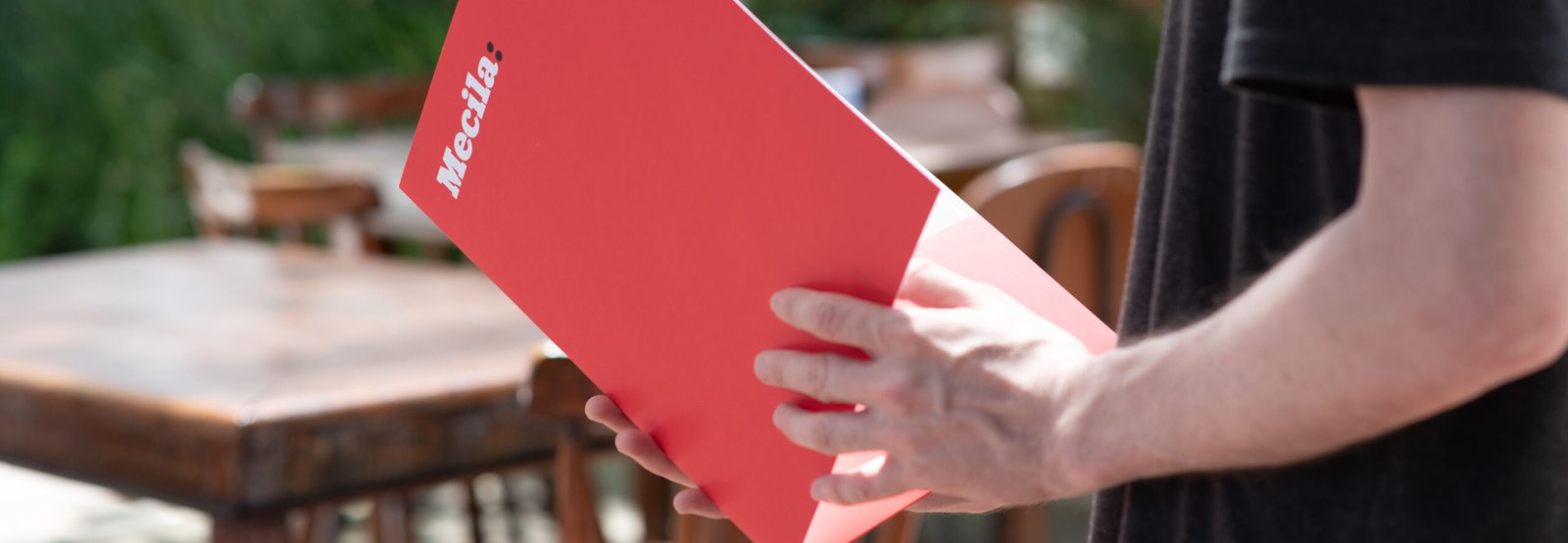
In every case, please put in CC
Tomaz Amorim | Scientific Manager
tomaz.amorim@fu-berlin.de
Fellows administered by the Universität zu Köln
Sofie Steinberger | Project Assistant
mecila-info@uni-koeln.de
Fellows administered by the Freie Universität Berlin
Mirka Slowik | Project Assistant
lucia.saca@fu-berlin.de
Milagros Pacco | Project Coordinator and Data Manager
milagros.pacco@uni-koeln.de
Nora Rabe| Librarian and Coordinator of the Information Infrastructure
mecila.library@iai.spk-berlin.de
Melanie Metzen | Events and Outreach Coordinator
melanie.metzen@fu-berlin.de
If you have specific demands related to one of Mecila’s outreach formats, please consult the related section below to check if you should contact additional members of the staff.
Joaquim Toledo Jr. | Scientific Editor
joaquim.toledo@fu-berlin.de
Roberta de Queiroz Hesse| Fellow Assistant
roberta.hesse@fu-berlin.de
If your request does not fall into one of the categories above, please write to the Coordination Office general e-mail, addressing your message to:
Tomaz Amorim | Academic Manager
mecila@cebrap.org.br
Working at Mecila
You will have at your disposal several types of research tools during your stay at Mecila.
These resources include support to manage your research data, a cloud storage service, access to physical and digital bibliography, support to outreach activities and publications. For details on physical work facilities, please go to this section.
During your enrollment as a fellow, you will receive subscription forms to have access to these services. Below you can find a short description of each of them, the forms (if you can’t find them in your mailbox anymore) and links for more detailed guides as separate files.
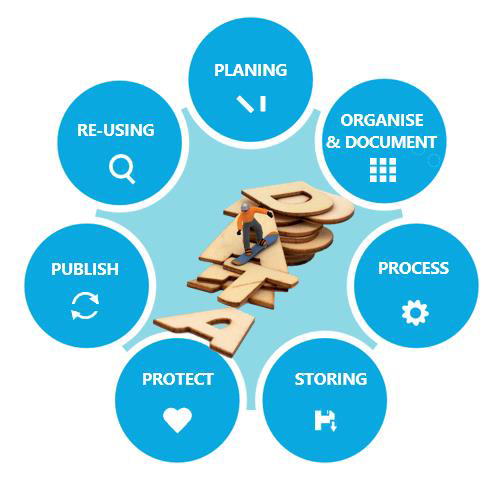
Research Data Management
The Mecila subproject of the University of Cologne is responsible for the infrastructure and support for Mecila’s Research Data Management (RDM).
The Centre’s RDM includes all actions and decisions taken before, during, and after the research process. It aims to guarantee both storage and access that should be sustainable, secure, and long-term.
During your fellowship, you will have at your disposal
Support to understand and organise a research data management plan.
Access to the Mecila Cloud, a cloud storage system based on Nextcloud, which includes:
The Mecila Calendar, which is integrated in the Mecila Cloud web interface and displays all the internal and public events of the Centre
And OnlyOffice, an open-source office software suite.
To have access to these resources you should fill a registration form provided below. We also ask you to fill a questionnaire about your research data requirements.
These forms, as well as any requests related to research data management and the Mecila Cloud should be sent to:
Milagros Pacco
✉ milagros.pacco@uni-koeln.de
Information Infrastructure
The Ibero-American Institute (IAI) coordinates the information infrastructure of the Centre, which provides all members of Mecila with the necessary research literature and relevant information sources, as independently of time and place as possible.
If you have specific literature needs that go beyond the library’s holdings, the IAI acquires the corresponding media with its own funds, if possible in electronic form, and makes it accessible to Mecila’s researchers.
All these resources are made available through different platforms
• IAI’s main catalogue, which encompasses the complete collection of the institution, with over 2 million itens
• The IberoSearch system, which also scans IAI catalogue while providing additional resources to manage the references.
• IAI’s Digital Collection, which contains all the copyright-free publications already digitised by the institution
• Mecila’s Electronic Reading Room, with over 283 publications directly related to the Centre.
To obtain full access to these platforms, you should obtain an IAI library card and a registration to Mecila’s E-Reading Room. There is a small video that explains to you how to use the IAI library search enginge.
The application forms can be found below, as well as a detailed guide of the information infrastructure, explaining the subscription process and how to make use of the resources.
These forms, as well as any requests related to bibliographical needs, should be sent to:
Nora Rabe
✉ mecila.library@iai.spk-berlin.de
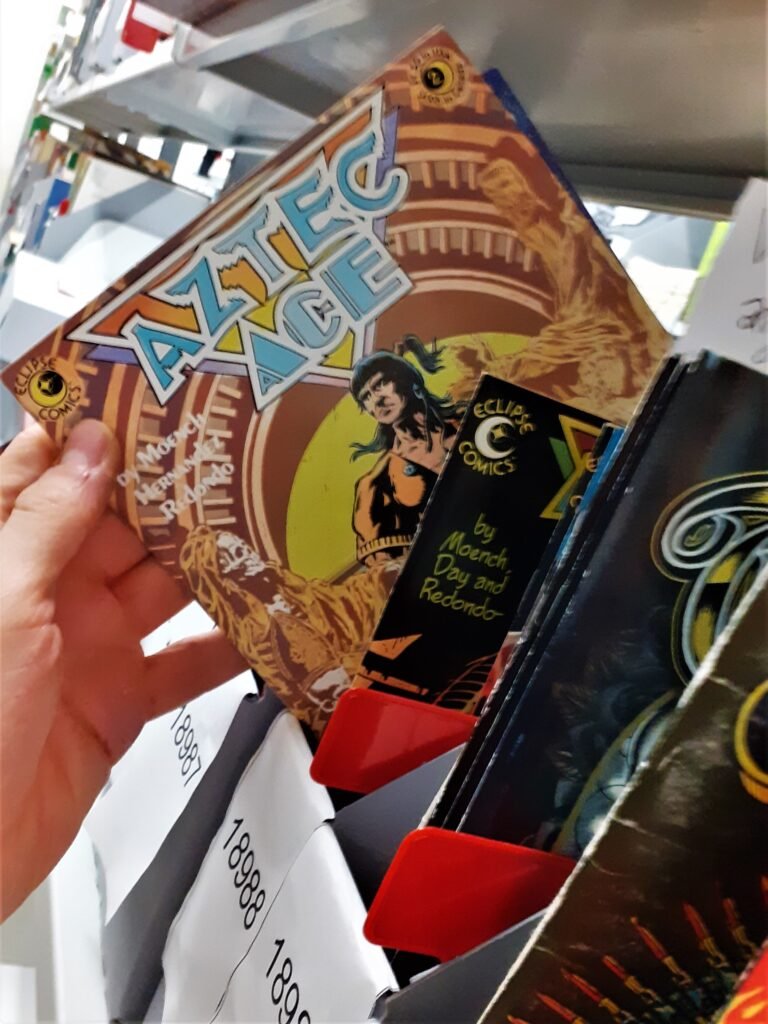
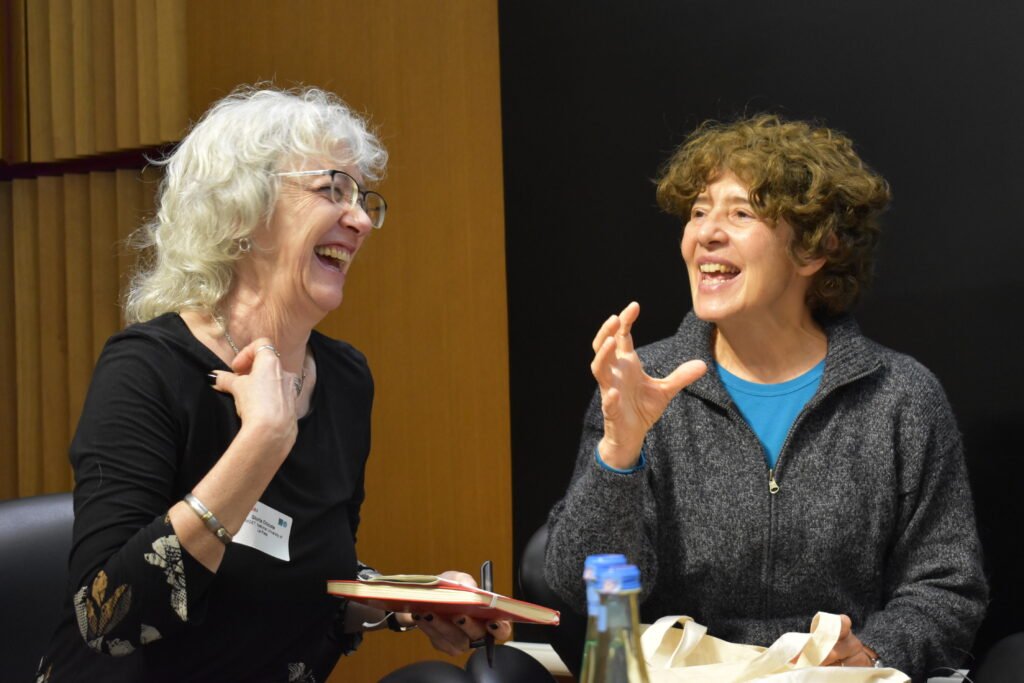
Events
A vital activity in the daily life of Mecila, academic events can either be internal activities or activities open to external audiences.
To easily keep track of the agenda of events, check your Mecila Cloud Calendar.
Below you find an overview of our most common formats.
Mecila Fellows will take part in the Regular Colloquia, which should occur on a weekly basis, to present their projects and ongoing research. Besides the Fellows, all other Mecila Investigators are invited to participate.
The calendar is organised on the first meetings of each year’s group of Junior and Senior Fellows.
How does it work?
Each session should last from two to three hours. One Fellow is designated to present a material, usually a text, with the current state of her/his research project. Another fellow is invited to moderate the session.
This material should be sent at least one week in advance to the Coordination Office (mecila@cebrap.org.br) which will distribute it among the participants of the Colloquium.
After an initial presentation from the text’s author, the session’s moderator presides over the order of questions and comments.
In the case of online meetings, at the end the discussion the participants are invited to stay for the breakout sessions, rounds of informal talks in smaller groups.
Still have questions? Write to:
Tomaz Amorim | Scientific Manager
mecila@cebrap.org.br
Each of Mecila’s Research Areas have their own series of meetings, which are focused on their own research agendas. Fellows are encouraged to participate in these meetings as well, if you wish.
Each RA usually holds one meeting per month. The agenda is defined by the respective coordinator of each area, who can be contacted if you have any questions.
RA Hi-Stories of Conviviality
Tilmann Heil | Postdoctoral Investigator and RA Coordinator
tilmann.heil@uni-koeln.de
RA Medialities of Conviviality
Carlos Nupia| Postdoctoral Investigator and RA Coordinator
nupia@iai.spk-berlin.de
RA Politics of Conviviality
Raquel Rojas| Postdoctoral Investigator and RA Coordinator
raquel.rojas@fu-berlin.de
The Centre’s Annual Meeting consists of an international conference and a forum for young researchers that gathers the Mecila community and guest researchers to share the research results of the year.
In 2020 the meeting took place in São Paulo under the title Living on the Edge: Studying Conviviality-Ineqaulity in Uncertain Times. All the panels are available at Mecila’s YouTube Channel.
In 2021 Cologne hosted the conference Encruzilhadas of Conviviality-Inequality: Re-Generating Suspensions, Struggles, and Openings. The Roundtables and Keynote Lectures are also available at our channel.

Gloria Chicote and Raquel Gil Montero
at the Annual Meeting of 2021
Mecila seeks to develop a network of academics and a platform to present research agendas. Events in cooperation with institutions from the consortium or partner institutions are part of this endeavour.
Fellows may be invited to participate in these either as audience members or as panelists.
In partnership with the IAI and coordinated by the Research Area Medialities of Conviviality, the Diversity/Medialities series of public lectures focuses voices from the margins, their long-term conceptual and epistemological frameworks, and their forms and media of circulation and entanglements. Feminist and LGTBIQ movements and ideas is the first focal point of the series.
The Mecila-CLACSO Dialogues series is part of these efforts, a product of the partnership between Mecila and the The Latin American Council of Social Sciences.
The Brazil-Berlin Dialogues of 2019-2020 also brought different voices together: academics, artists, journalists, activists debating the many faces of the Brazilian crises.

The last roundtable of the Brazil-Berlin Dialogues
The COVID-19 pandemic brought us expertise in organising online events with live-streaming. If you want to produce an event that is related to your ongoing research subject at Mecila, you are welcome to propose such events to the Coordination Office, which will help you with all the necessary arrangements, from finding a date to the production of dissemination materials.
How can I contribute?
Send a message to Tomaz Amorim (tomaz.amorim@fu-berlin.de) and Melanie Metzen (melanie.metzen@fu-berlin.de) sharing your proposal. Please include as many information as you have, such as:
• Title and purpose of the conference
• Possible dates and time
• Languages that will be spoken
• Possible guests with their contact info
Publications and Outreach Platforms
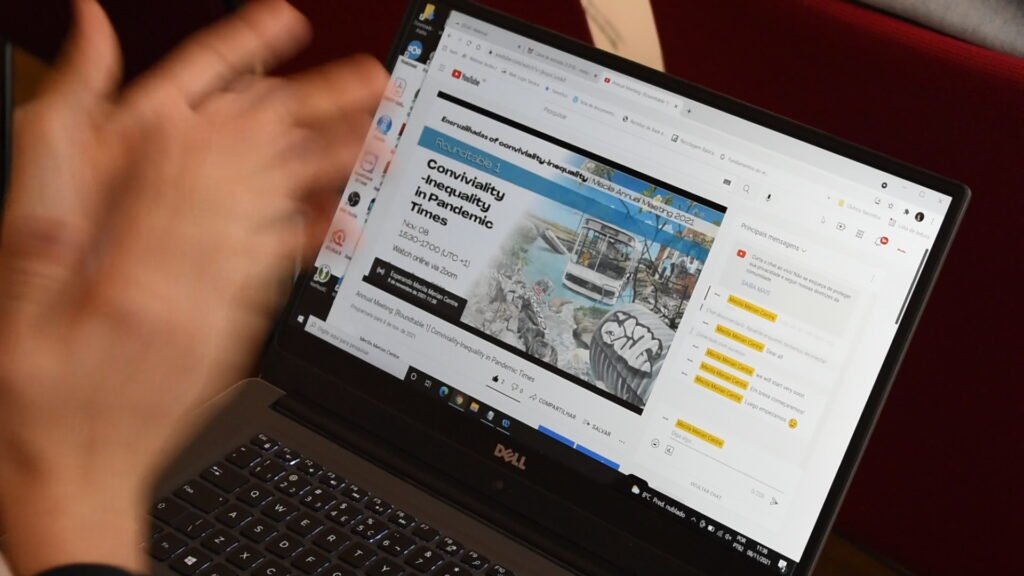
Mecila has a variety of formats to present its research to the public. The Working Paper Series is currently our main production, which encompasses the articles produced by the Centre’s researchers and other collaborators.
If you would like to contribute to any of the formats described below, please get in touch with the person responsible for each platform. We will be glad to receive your suggestions and assist
you with the production process.
If you want to start your own production, the guide below provides basic tips for recording video and audio.
Managed by:
Joaquim Toledo Jr. | Scientific Editor
joaquim.toledo@fu-berlin.de
As a Mecila Fellow, you will be expected to submit a working paper (WP) during your fellowship. Deadlines for drafts and final versions will be discussed with the Scientific Editor. The general guidelines that you should take into account when writing your manuscript are available as a separate document in the button above.

Here is some useful information regarding the Series’ editorial concept and process.
What is a Working Paper:
• A WP consists of academic work released for purposes that include, but are not limited to, the aims of a published article or book chapter. The papers are published in English, Portuguese or Spanish.
• It allows for flexibility and helps to make early results public and stimulate debate via open access.
• The papers are distributed under an open access policy. The Series is made available digitally on Mecila’s website, and a print version is available at the IAI library in Berlin.
• All work is new, i.e., WPs are not republications or reviewed versions of already published papers.
• Every WP is internally peer-reviewed by up to two Mecila investigators. If necessary, an external review may be required.
Research sponsored by or inspired by the Centre’s research subjects (conviviality-inequality) may be produced as a WP for one or more of the following reasons:
• Presentation of empirical research.
• Critical analysis of existing theoretical debates.
• Analysis of longstanding empirical puzzles from a new theoretical perspective.
• To start a discussion with the Centre’s affiliates regarding a new approach, a new set of empirical circumstances or knowledge relevant to conviviality.
• Publish the content of keynote addresses held at the Centre’s events.
• Distributing a conference paper.
Managed by:
Joaquim Toledo Jr. | Scientific Editor
joaquim.toledo@fu-berlin.de
What’s a Policy Brief?
A Policy Brief (PB) is intended for primarily non-academic audiences, focusing on prescriptive questions by diagnosing a particular problem or situation and advocating a specific solution.
Purpose
In the Mecila Policy Brief Series, research sponsored by or inspired by the research themes of the Centre may be produced as a PB for one or more of the following reasons:
• To state the policy implications of original empirical research.
• To evaluate a range of policy options for addressing a policy problem.
• To make policy recommendations based on criteria developed in empirical or theoretical research.
• To offer context and highlight the need to address specific policy problems.
• To publish a summary of public events organized by the Centre that have a direct bearing on policy.
Submissions
Papers can be submitted to the series by invitation or as an expected product of fellowships. A paper in the series must be new work, appearing for the first time as a policy brief, even if drawn from earlier research or publication.
Policy Briefs should be short, persuasive, well-supported with evidence, and written and edited efficiently to reach broad audiences.
All papers are made available on Open Access.
Languages
English, Spanish, Portuguese or German, depending on the intended audience.
Managed by:
Joaquim Toledo | Scientific Editor
joaquim.toledo@fu-berlin.de
With the support of:
Raphael Concli | Fellows Assistant
raphael.concli@fu-berlin.de
To reach broader audiences, we encourage authors to produce a two-minute video in accessible language explaining their paper’s topic and its main outcomes.
In the case of a virtual fellowship, authors record themselves and the Coordination Office edits the raw material, producing the final cut. Fellows in São Paulo can arrange a day and time to be recorded by the Coordination Office staff. The video is published on Mecila’s social media platforms and on our YouTube Channel.
The videos can be in English, Portuguese, Spanish or German. Choose the language you feel most comfortable with.
Useful tips in contributing to the series:
• We suggest authors to produce a short script to serve as a guide for their recording. If you are not used to self-recording, focus on the text and we’ll assist you with the camera.
• Try a test reading before you record to check how much time your recording takes.
• Consider that you are speaking with a lay audience that might not be familiarised with the state of the art of the discussions in your area. You do not need to detail the structure of your paper or all the references that bolster your argument.
• Answering questions such as ‘what are you investigating?’, ‘why are you investigating this?’, and ‘what can we discover from reading your paper?’ can serve as a guide.
• If you write a text, please send it to us. This will help us to provide subtitles.
• We also ask for visual references such as pictures, movie excerpts, or any type of image that could be used to illustrate what is being said. Authors only need to indicate these references in their texts and the editors will procure the materials.
Managed by:
Melanie Metzen | Events and Outreach Coordinator
melanie.metzen@fu-berlin.de
Academic terms may sound rather distant to those who are not trained in it. The Mecila Glossary Series tries to bring broader audiences to the conversation by presenting videos about the meaning and application of some of the concepts you work with and how they help you in your investigation.
The videos are around 5-7 minutes and are hosted on our YouTube channel. They can be recorded in English, Portuguese, Spanish
or German.
Feel free to make a contribution by proposing a term to the series.

Glossary episodes can also be produced by more than one researcher
How can I contribute?
Think of a term you would like to explain and share your idea with Melanie Metzen.
This series follows a similar production model as that of the video-abstract series. We also suggest authors to produce a short script and include visual references that might be used to illustrate what is being said.
If recording remotely, you can use our guide to help you set the scene. If you are in São Paulo, you can arrange a day with the Coordination Office staff to do the recording.
We can speed up the production of subtitles in other languages if you send us your script.
Our intended audience also includes non-specialists, meaning that you should consider providing ample context with your presentation.
Managed by:
Raphael Concli | Fellows Assistant
raphael.concli@fu-berlin.de
Mecila’s Podcast aims not only to set up roundtables for investigators discussing a topic, but also to produce a narrative approach to research developed in the humanities and social sciences.
The Working Paper Series serve as the main source for the development of the episodes. Most of the series’ episodes are developed and produced by the podcast runner, but Fellows are invited to produce their own episodes with our assistance.
Episodes are hosted at Buzzsprout, our podcast server, and made available at Mecila’s website, Mecila’s YouTube channel, and all the main podcast platforms such as Deezer, Spotify, CastBox, Google Podcasts, Stitcher, Podcast Addict, Apple Podcasts, and many others.
How can I contribute?
If you have an idea for an episode share it with Raphael Concli. You should mainly consider how does your episode relate to the work you are developing at the Centre. If you wish to go beyond the format of plain interviews, that can be discussed as well.
Living in São Paulo
Documents and mobile connectivity
Your passport and visa are the minimum requirements you need to come to Brazil. Since you will be staying in the country for more than 90 days, you should apply for a Visa.
After arriving in Brazil, you must apply for a Foreign Nationals Enrollment Number (Registro Nacional Migratório – RNM).
Another document that might be useful, albeit not mandatory, is the Individual Taxpayer Registration (Cadastro de Pessoas Físicas – CPF). This number provides better access to private services such as mobile phone plans and allows you to open a bank account in Brazil if needed. It is also required to obtain a São Paulo public transportation card.
Below you will find a brief description and a step-by-step guide to obtaining these documents and some tips about mobile phone plans.
Unfortunately, most of the websites and forms you will need to go through are available only in Portuguese. If you need any help, please contact our fellows assistant in São Paulo.
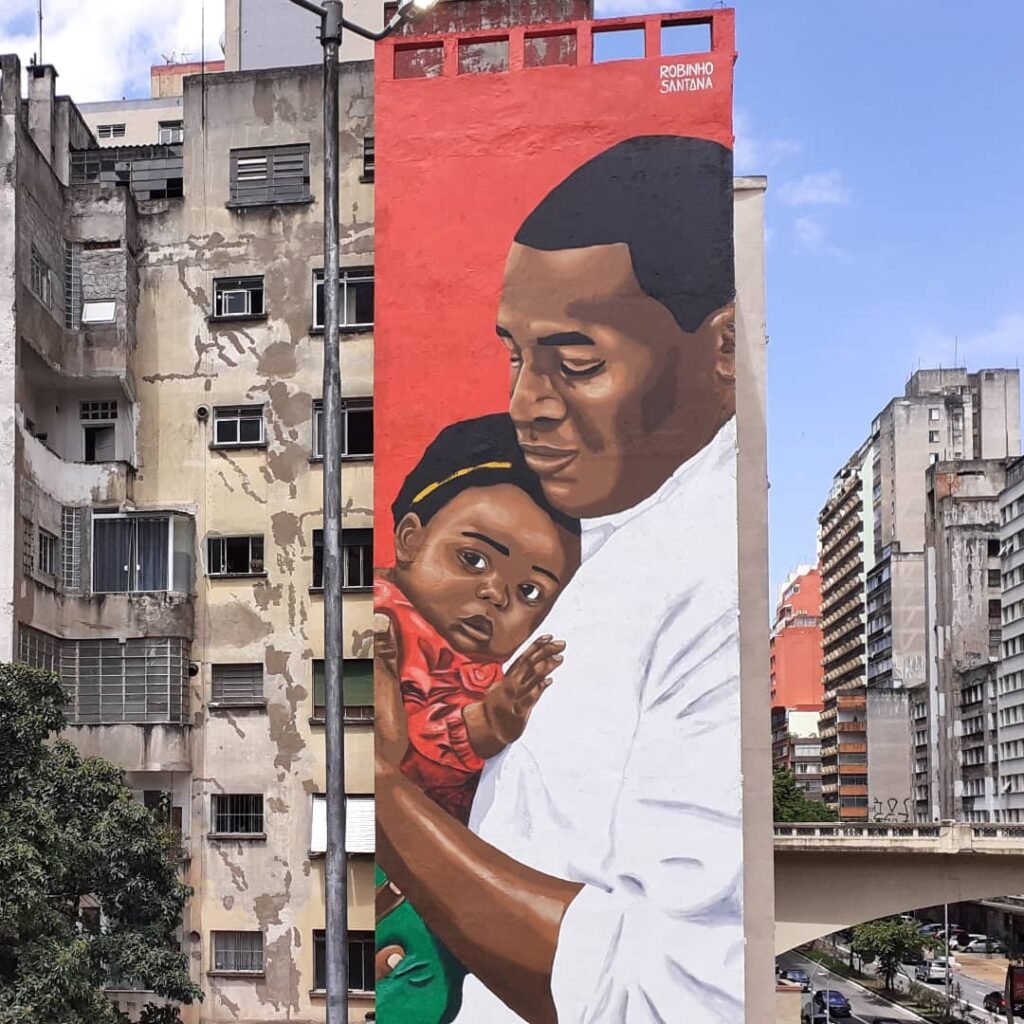
This process might take quite some time, so we higly recommend you to start it as soon as possible.
You should apply for a Temporary Visa type I (VITEM I): research, teaching or academic extension, which will be valid during your whole stay.
Check the specific instructions of the Brazilian Consulate of your Country. Many Brazilian Consulates offer digital services through the e-consular system. When searching for your country on the link above, you will see if this is available in your case. An online subscription will be required to access the system.
In any case, some documents will be asked regardless of your place of application:
1. Valid passport.
2. Visa Application Form
3. Letter confirming you will be developing research activities in Brazil
If Mecila directly remunerates you:
4a. Confirmation letter from Mecila that the fellows will receive funds that covers travel expenses, accommodation and living costs
If your Fellowship is a buy-out:
4b. Confirmation of continued payment of your salary by your home institution.
Documents 3, and 4a will be provided to you by Mecila.
5. For some cases a criminal record might be required.
All foreigners staying for more than 90 days in Brazil must obtain an individual registration with the Federal Police, the Foreign Nationals Enrollment Number (Registro Nacional Migratório – RNM).
This is a rather bureaucratic process involving many forms. Follow our step-by-step below, and this task will be tedious but not annoying.
1. Fill out this Registration Form at the Federal Police website
Some fields might raise questions. See some tips below:
PERSONAL DATA:
Type of Registration: Registro de Visto Consular (it means you have a Visa, not a residence permit)
Primary Occupation: Even though the form is in English, this field will only accept answers in Portuguese. You can type “Estudante” or “Professor” and click on the appropriate option to fill out this field.
REGISTRY DATA
RNM Data: Leave it blankBrazilian Register of Foreign Nationals Enrollment Number (RNM): Leave it blank
ADDRESS – Business Address/School Address
Name of the School: Centro Brasileiro de Análise e Planejamento
Zip Code: 04015-051
Address: Rua Morgado de Mateus
Additional Details: 615
District/Neighborhood: Vila Mariana
City: São Paulo
State: SP
Work Phone Number: 11 5574 0399
A form will be issued following the completion of this process. Print it or save it as a PDF file.
2. Schedule an appointment at the Federal Police
After filling the registration form, you will have to schedule an appointment at the Federal Police. Choose the time slot that suits you best.
3. Issue the invoice to pay for this service fee
Fill out this form to generate the invoice, also known as GRU. Again, some fields might be tricky. Fill it out as below:
Unidade Arrecadadora (which unit will receive your payment): SP (0272) Superintendência Regional de Polícia Federal em São Paulo
Código Receita STN: 140120
Valor total: R$ 204,77
4. Print and fill out the Contact Information Form
The fields in this form translate as follows:
Identificação – Personal information
Nome completo – Your full name
Filiação 1 – Your mother’s full name
Filiação 2 – Your father’s full name
CPF number (not mandatory)
Data de nascimento – Date of birth
Documento de Identidade – Passport number
Nacionalidade – Nationality (options will be displayed in Portuguese)
Telefones – Phone numbers (if you do not have one, use CEBRAP’s (11) 5574-0399
Endereço eletrônico/E-mail – Email
Endereço residencial – Home address in Brazil
Endereço do trabalho – Business address in Brazil
Cidade/UF – City/State (São Paulo/SP_
Data (dia, mês, ano) – Date (dd/mm/yyyy)
Assinatura do declarante – Your signature
5. Gather all the required documents printed to your appointment at the Federal Police
Most of these documents are the forms you have just filled in. But there is more. Here is everything that you need:
- The registration form of the Federal Police (filled on step 1)
- Appointment confirmation (generated after step 1)
- Proof of payment of the fee (generated on step 3)
- Contact Information form (filled on step 4)
- One 3×4 colour photo of your face, taken with a plain white or off-white background and undated
- Your passport
- Original visa application form
- Proof of residence (Statement from the hotel/airbnb you are temporarily staying at or, if you are staying with a third party, proof of residence from the third party and a notarized letter from the third party)
Note: If your passport does not include your parents’ name, you will have to present a document that has it, such as your visa form or a birth or marriage certificate.
6. Attend the interview at the Federal Police
And don’t forget your documents!
7. Receive your receipt (protocolo)
After your interview, you will receive a receipt (protocolo) that proves your legal status in Brazil. You will have to keep it until your document is ready, which can take several days.
Check the status of your requirement here. Once your document is ready, you will have to pick it up at the Federal Police Office.
The Individual Taxpayer Registry (CPF) is required for Brazilians or foreign nationals who want to own assets and rights in Brazil, subject to public registration. If you’re going to buy real estate, vehicles, or open bank accounts, for example, you will need it.
The CPF consists of an 11-digit number, which you will receive right after registration. A physical copy of this document is no longer issued. In your case, the CPF will most probably be helpful when searching for a mobile phone plan since the options for foreigners without a CPF are quite restricted and more expensive.
There are two ways of obtaining it:
Request your CPF while in your country of origin
In many countries where Brazil has a local representation, it is already possible to request your CPF through the e-consular system.
Check this list to see if your local consulate(s) offer this possibility. The ones that provide the e-consular services will show you the link where you read “solicitar serviços nesta repartição consular” (request services at this consular post).
You will need to create an account in the e-consular system. After your registration, you will be able to request the service through the system itself.
This service is free of charge.
Request your CPF in Brazil
While in Brazil, the procedure to request your CPF is slightly different.
I. Fill the requirement form
You will fill out this form (available only in Portuguese) directly on Brazil’s Federal Revenue (Receita Federal) website.
You will need your passport number. If you already have an address in Brazil, you can use it to fill the fields under the “localização” (place of residence) section. If not, you can use your country of residence address.
In the section “Contatos” (People of reference), you can fill the field “e-mail” with Mecila’s Coordination Office’s address (mecila@cebrap.org.br) and Cebrap’s telephone number: DDI: 55, DDD: 11, Telefone: 5574 0399
2. Fill the declaration of tax residence
You will print, fill out and sign this form (also available only in Portuguese and directly on Brazil’s Federal Revenue website).
You will need to fill out your home address (where you pay your taxes), and declare that you do not pay taxes in Brazil.
3. Send documents and CPF requirement to the Federal Revenue
After receiving the confirmation of your requirement, you can proceed online to obtain your CPF number. You will need to send via email to one of the Federal Revenue Offices in São Paulo the following documents:
- A picture of your passport’s main page
- Proof of residence (such as the reservation proof of your accomodation in São Paulo)
- A portrait of yourself holding your passport open on its main page
- Requirement form
- Declaration of tax residence
We recommend sending your documents to the Federal Revenue Office of Bela Vista in São Paulo: atendimentorfb.08@rfb.gov.br
In 5 to 7 working days your CPF number will be sent to you.
Currently, there is one company, Airalo, that offers eSIM services that allow travelers to access mobile data without the need for physical SIM cards. By downloading the Airalo app and purchasing an eSIM plan, users can seamlessly activate and use data in Brazil and other countries without the need for a CPF or any other kind of registration. To acess it you can follow this instructions:
1. Check Device Compatibility:
– Ensure your smartphone is eSIM compatible. Most newer models, like the iPhone XS and later or Google Pixel 3 and later, support eSIM.
2. Download the Airalo App:
– Visit the App Store (iOS) or Google Play Store (Android) and search for the “Airalo” app.
– Download and install the app on your device.
3. Create an Account:
– Open the Airalo app.
– Sign up for a new account using your email address or log in if you already have an account.
4. Select a Destination:
– Within the app, browse for eSIMs based on your destination. Airalo offers country-specific, regional, and global eSIM plans.
– Select the eSIM plan that best suits your needs in terms of data and duration.
5. Purchase the eSIM:
– Add the selected eSIM plan to your cart.
– Proceed to checkout and complete the payment process using a credit card, PayPal, or other available payment methods.
6. Install the eSIM:
– After purchase, go to your eSIMs in the app.
– Select the purchased eSIM and follow the on-screen instructions to install it. This typically involves scanning a QR code provided by Airalo or manually entering the activation details.
7. Activate the eSIM:
– Once installed, go to your device’s settings:
– For iPhone: Settings > Cellular > Add Cellular Plan and scan the QR code or enter the details manually.
– For Android: Settings > Network & Internet > Mobile Network > Advanced > Carrier > Add Carrier and scan the QR code or enter the details manually.
– Ensure that the eSIM is set as the active data plan. You might need to enable it in the cellular or mobile network settings.
8. Configure Settings:
– Make sure data roaming is enabled for the eSIM to function properly.
– Set the eSIM as the primary or secondary data line based on your preference.
9. Start Using Your Data:
– Once activated, you can start using the eSIM for data.
– Monitor your data usage through the Airalo app to ensure you stay within your plan’s limits.
If your device is not supported or if you wish to have a brazilian number, you will have different brazilian companies to choose from such as Claro, Tim, Vivo, Correios and Fluke. In the city of São Paulo, you should have a stable 4G connection regardless of the company you choose.
If you do not have a CPF number, your options are limited since this document is required when subscribing to a service. Just one company offers an option for people for international visitors, TIM, with their plan Tim Visitors. However, this plan is much more limited and expensive than regular options. Consider it as an emergency solution.
The customer should go to a TIM store and ask for the TIM Visitors SIM card. This is similar to a pre-paid plan: you insert credits corresponding to the services used.
- Internet data: R$25,00 for 1,5 Gb, valid for one week. Additional weekly packs of 1,5 Gb can be purchased in advance for another R$25,00.
- SMS: each message will cost R$0,50
- Phone: Calls within Brazil cost R$0,50 per minute. International calls are R$1,00 per minute
For the sake of comparison, you can find regular plans by other companies that offer a data 9Gb of data and unlimited calls within Brazil for R$45,00/month
With a CPF in hand, you will have multiple options. It might be better to consider plans that have non-binding contracts (contratos sem fidelidade) since some companies require the customer to keep the service for at least 12 months.
You can buy a SIM card in kiosks or regular stores (except in the case of Fluke, which operates entirely online and sends the card to the customer’s house). To find the most suitable plan for your needs, you can use comparison tools. The National Telecommunications Agency (Anatel) offers an app to compare plans. These comparisons are also available through websites such as “melhorplano”.
If you still need assistance, please get in touch with us.
Throughout Brazil, you can pay for almost everything using your credit card. However, withdrawing cash from your credit card can be more challenging.
Even with an international credit card (like DKB), which should work worldwide, it might only function at 24hour ATMs (Caixa 24horas) in Brazil, incurring withdrawal fees and possible value limits. For security reasons, we strongly advise against withdrawing cash at the airport. Official taxis typically accept credit card payments. Therefore, we recommend using the Caixa 24horas ATM nearest located to your residency (easily located through Google Maps). Alternatively, consider bringing some cash and exchanging it at a “casa de câmbio” (currency exchange office). Several options are available on Avenida Paulista, relatively close to Cebrap.
Regarding banking:
Opening a local bank account requires the RNM (Foreigners National Enrollment Number ID). Once you have your RNM, digital banks like Nubank, C6, and Inter are recommended. In the interim, consider international banks like Wise or Nomad. These offer low fees, enable transfers from your home country’s bank account, and allow in-app currency conversion to Brazilian Reais (BRL). These banks also allow you to use instant mobile phone app transfers (Pix), widely used in Brazil.

Health and Safety Emergencies
Emergency Numbers
- Dial 190 to call the Police
- Dial 192 to call an Ambulance
- Dial 193 to call the Fire Brigade (“Bombeiros”)
Most probably, to obtain your visa, you will be required to present proof of health insurance coverage in Brazil for the length of your trip.
It is recommended that you search for a health insurance that provides access to a set of quality reference hospitals in the city of São Paulo, such as:
- Hospital Sírio Libanês
- Hospital Israelita Albert Einstein
- Hospital Alemão Oswaldo Cruz
- Hospital Santa Catarina
- Hospital 9 de Julho
- Hospital São Luiz
- Hospital Samaritano
In any case, you should be aware that Brazil has a Public Health System (Sistema Universal de Saúde – SUS) that is free of charge. Even before you have your Brazilian documents, you are entitled to use them if necessary.
Anyone without previous registration can access emergency medical services by going to the Emergency Care Unit of your region (Unidade de Pronto Atendimento – UPA).
To find the UPA closest to your place, use this map. Go to the option “Urgência/Emergência” and toggle on “UPA”.
Mecila’s Facilities
Address: Rua Morgado de Mateus, 615.
Open Hours: Mon-Fri, 09h00 – 19h00
Staff based here: Tomaz Amorim, Joaquim Toledo, Melanie Metzen, Roberta Hesse
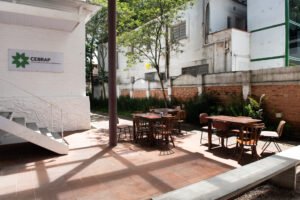

With a privileged location in the neighbourhood of Vila Mariana and close to São Paulo’s most famous park, Ibirapuera, the Brazilian Center for Analysis and Planning houses Mecila’s local Coordination Office team.
At Cebrap, Mecila Fellows also have offices at their disposal. Even though most of these rooms can be used by at least two people, only one person is currently allowed per room due to the sanitary situation.
Cebrap’s “Elza Berquó” auditorium can host up to 40 people and is equipped with a computer and a projector. The auditorium can be used by every research nucleus or project based at Cebrap with prior reservation. Many seminars and presentations take place here, either for internal activities or with an open audience.
If you want to hold an event at the auditorium, contact Melanie Metzen (melanie.metzen@fu.berlin.de) and share your idea.
Centro de Difusão Internacional
Address: : Av. Prof. Lúcio Martins Rodrigues, 310 – Butantã, São Paulo – SP, 05508-020
Open Hours: Mon-Fri, 09h00 – 19h00
Staff based here: Marina Falcão Motoki, Roberta Hesse


Mecila also has three collective workspaces at the Butantã campus of USP, in the western region of São Paulo. Our office is at the Centro de Difusão Internacional building, 4th floor, opposite the School of Communications and Arts (ECA). The building’s entrance is accessible through the garage at the back.
USP is massive. The University has almost 30 libraries considering just the Butantã campus. Without an University’s ID, you will not be able to check books out, but you can consult them while in the libraries. Mecila’s Researchers can also work there as visitors.
When connected to USP’s wi-fi, through Eduroam, you will also have access to the University’s network and its services (check below).
Find what you need
All USP libraries are listed here, with their working hours, individual websites, and addresses.
The Integrated Search System of the University will let you search for every type of item: books, articles, journals, etc. (available also in English and Spanish)
The Journal Portal lets you search only within the 198 scientific journals subscribed by the University.
And the Database Portal shows you all the 313 scientific databases that can be accessed whileat USP. SciElo, JSTOR, Wiley and many others are available.
Here is also a link to campus maps and other useful information.
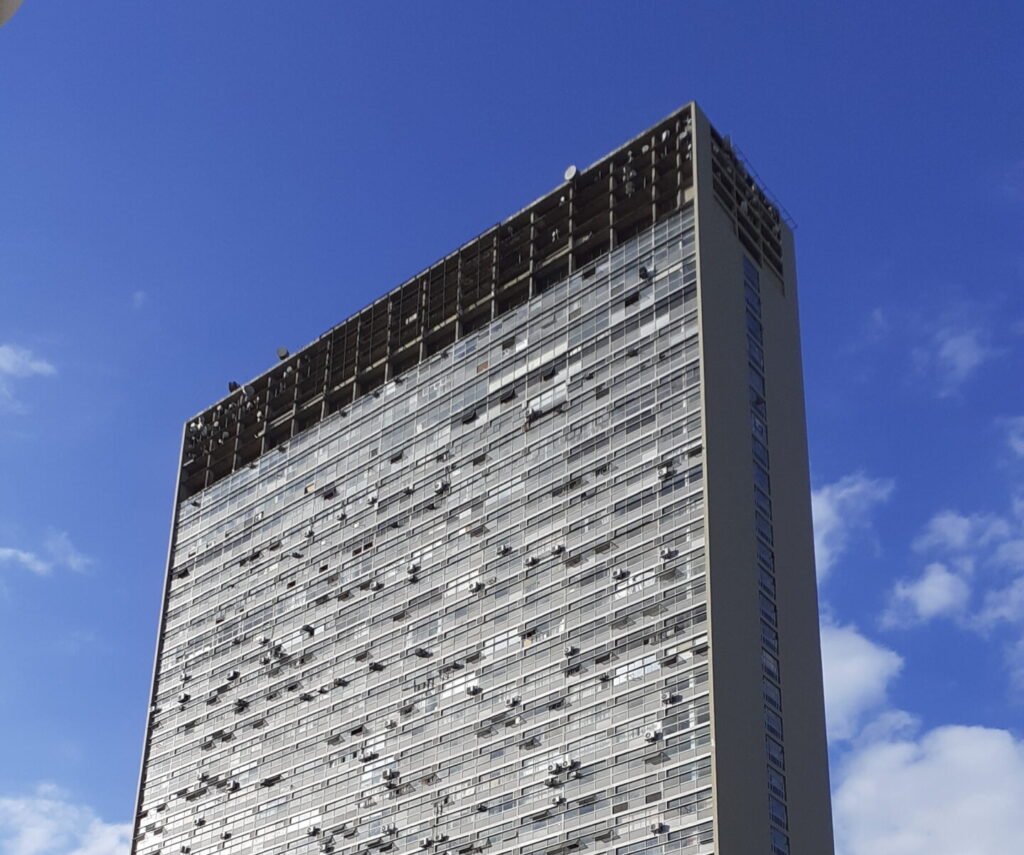
Housing
Regular lease agreements in São Paulo usually consider a period of at least 30 months. If the tenant leaves the place earlier, they will have to pay a fine, typically equivalent to three months of the lease payment. Tipically this fine is equivalent to three months of the lease payment minus the time spent as a tenant.
If your lease is R$3.000,00/month, the fine value starts at R$9.000,00. For each month you spend as a tenant, the fine is reduced by R$300,00 (9.000 divided by 30). If you break your contract after 9 months, the fine will be of R$6.300,00.
In the face of such limitations, the best options to find a private and fully equipped place should be the following companies:
AirBnB
Quinto Andar
Yuca
Housi
Conviva Temporada
Besides price, proximity to Mecila facilities and public transportation is important due to the vastness of the city. Consider which places you will spend most of your time. Remember that Cebrap is around a 20-minutes walk away from Ana Rosa subway station (blue and green line), and USP Butantã is close to Butantã subway station (yellow line).
CEBRAP is in the neighbourhood of Vila Mariana. Next to it you might consider the neighbourhoods of Aclimação, Paraíso, Chácara Klabin, and Vila Clementino.
Mecila’s offices at USP are in the Butantã campus, which is also the neighbourhood’s name. Besides Butantã itself, Pinheiros, Vila Madalena, Sumaré, and Perdizes are interesting areas to consider.
Downtown you can also find lively areas with a vast offer of public transportation services. Consider the neighbourhoods of Vila Buarque, Santa Cecília, Consolação, and Bela Vista.
Commuting
If you need to use taxis or any other form of private transportation, many apps are available in São Paulo, such as Vá de Táxi, Uber, 99, and Cabify.
Depending on your route, having a bike can be an alternative. The city has many cycle lanes and paths, and some bus terminals and subway stations even offer places to park your bike safely. You can toggle on a layer that shows you all the city’s cycling routes with Google Maps.
And of course, you can also make good use of the city’s public transportation system. The regular fare for the subway, train or bus costs R$5,00.
For commuters who don’t own the city’s travel card/transit pass (Bilhete Único – more on it below): In the subway/train system, you purchase a single-ride ticket in stations and use it in the turnstile before the boarding platforms. Ticket booths with clerks take cash only. At Ticket Machines, you can use a debit/credit card. In buses, you pay your fare in the vehicle with cash only.
The city should be easy to navigate. Apps such as Google Maps and Moovit are well integrated with the public transportation system of São Paulo and will show you in detail the commuting possibilities.
If you don’t have a “Bilhete Único”, the only way to pay the fare is inside the bus with cash. The collector will be next to the bus turnstile. In exceptional cases (smaller buses, old models), the driver is also the collector. For every new bus you take, you will have to pay the fare again.
Note: In some cases, apps such as Google Maps may show routes including intercity buses operated by EMTU. In these cases, the line number will also show this symbol:
These lines do not accept the “Bilhete Único”, so you will have to pay a fare, which can vary depending on the bus route.
The rail system of São Paulo is mainly comprised of a subway and a train network operated by different companies. These lines have several connection points. In these stations, you can change lines without paying a new fare.
The subway system encompasses lines 1-blue, 2-red, 3-green, 4-yellow and 5-lilac. This is what people call “metrô”. Line 15-Silver is the monorail (monotrilho).
All the other lines are operated by CPTM. This is commonly referred to as the “train” (trem). CPTM lines are usually much longer and reach other cities of the metropolitan area of São Paulo.
If you plan to be a heavy user of the public transportation system, we highly recommend obtaining a “Bilhete Único” (Unified Ticket). It is an individual card that allows you to purchase time-quota tickets. If you prefer the regular fare, add credits to your card, and you will be able to take up to 4 buses in 3 hours, paying just once.
How to obtain it:
- Register yourself at the SPTrans website (non-Brazilian citizens will need an RNM and a CPF).
- Once your registration is approved, go to one of SPTrans service stations with your passport to get your card.
How do I insert credits into my card?
You can use the SPTrans ATMs available at bus, subway and train terminals to buy credits with cash or debit/credit card.
Alternatively, you can also use the SPTrans website or one of these mobile apps to add credit to your card or buy the time-quota tickets.
The main fare possibilities for you will be:
Monthly pass (bus only or subway/train only): R$ 213,80
Allows ten commutes per day for 31 days
Monthly pass (bus + subway/train): R$ 338,00
Allows ten commutes per day for 31 days
Daily pass (bus only or subway/train only): R$ 16,80
Allows ten commutes per day for 24 hours
Daily pass (bus + subway/train): R$ 22,52
Allows ten commutes per day for 24 hours
Regular pass (bilhete comum): R$ 4,40
Add as much money as you want. The regular fare will be charged when you take a bus, train or subway, except for the “integration period”: when paying the fare with the Bilhete Único card, you can take up to 4 buses in 3 hours paying just the first one.
Exploring the City
During your stay in São Paulo, you will have Mecila’s facilities at CEBRAP and USP at your disposal, but São Paulo shouldn’t be restricted to those spaces. The city has a wide variety of parks, museums, libraries and places of interest.
To avoid having a long list here, we have pinned some of these locations on a Map.
Weather
São Paulo usually has a mild weather, but it might get pretty cold or pretty warm some days. It might also get very rainy and unstable. We highly recommend you to bring a jacket and a sweater for the cold days (usually between 7º and 17º), and light clothes for the warm days (usually between 24º- 33º).

